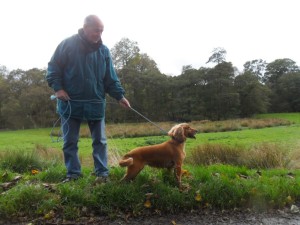The Cocker Spaniel
The cocker spaniel is a really popular choice of pet dog, but could this be the right dog for you? In our Holidays 4 Dogs series of dog breed articles, this one will look more closely at the merry little cocker.
There are two distinct types in the U.K – the show type cocker spaniel and the Working strain cocker. Both types are usually happy-go-lucky little dogs, full of enthusiasm and generally even tempered and biddable.
History.
Spaniels have an ancient history, first being mentioned in an eminent English publication written between 1406 and 1413. Titled ‘Master of Game’, it was an in-depth book on the subject of hunting and was dedicated to Henry IV.
By the 17th Century, the flintlock gun was introduced to England. This prompted the development of various modern day spaniels we have today. Modern day breeding keeps each spaniel type separate, but early breeding of spaniels meant smaller spaniels were crossed with larger types.
Records were generally not kept and it was usual for different sizes and types of spaniel to be produced in the same litter. Dogs were classified according to size. Thus, a weight of less than 25 lbs meant the dog would be classed as a cocker spaniel. By 1893, the Kennel Club set up a stud book for cocker spaniels.
Skills.
The job of the cocker was to track and flush quarry from undergrowth. There are many gundog enthusiasts today who work cocker spaniels in the field.
Even the show bred variety retain some of that drive and potential to work. 
In terms of looks, the show cocker is of slightly larger proportions with a domed head and much longer ears. His working cousin is generally smaller, shorter on the leg and with broad, flat topped heads. They also have shorter ears and a less profuse coat.
Character.
The show cocker is generally reputed to be slightly less energetic than the working type. However, both dogs will take a fair amount of exercise and make great pets for active families.
The working strain are much ‘busier’ and perhaps less easy to handle for the novice owner. Working cockers generally want to be on the go all the time and often have a high prey (chase) drive.
Health.
The cocker spaniel Breed Council advises that some inherited diseases affect this breed. These are;
- PRA (eye disease),
- FN (Familial Nephropathy, or shrunken kidney),
- Hip dysplasia has been found in some strains of cocker Spaniel.
The cocker spaniel has grown in popularity in recent years. It has also become a popular choice in the breeding of ‘designer’ dogs, such as ‘cockapoos’.
Conclusion.
They are certainly an extremely good looking little dog. However, those cute chocolate box looks hide a very energetic dog underneath, especially with the working type.
Cocker spaniels have affectionate and happy natures. They are highly sociable and eager to join in with any family activities. Their size makes them easier to transport and adaptable to all sorts of environments. Cocker spaniels can make ideal family companions for active families, where these busy little dogs will absolutely shine.


